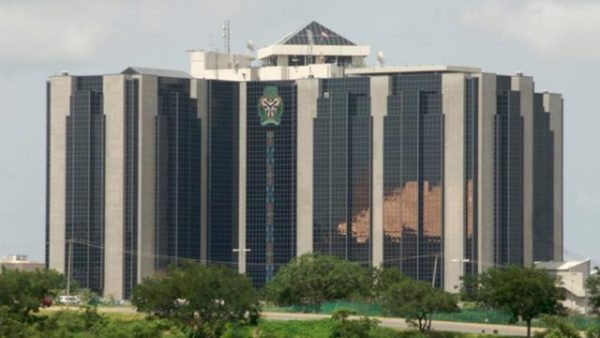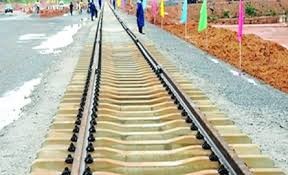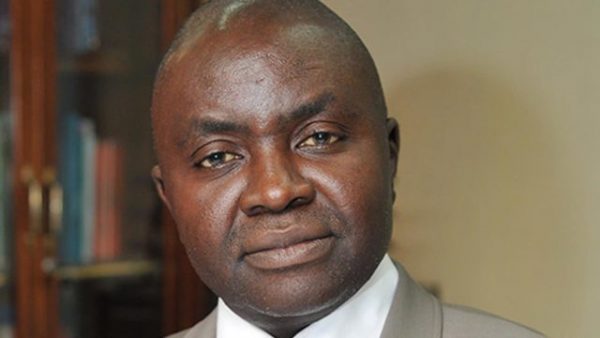Averting looming recession through monetary stimulus

The economy was yet to fully recover from the 2014 oil price shock, followed by the 2016 economic recession, and now on the brink of another plunge on account of the effects of the novel coronavirus (COVID-19) pandemic.
Recession is a period of a significant decline in activities across the economy, characterised by low industrial production and manufacturing, high inflation, rising unemployment, falling purchasing power, low fiscal spending, as well as poor consumer spending, among others.
Indeed, the Central Bank of Nigeria (CBN), had reiterated that uncertain global economic events would shape the outcome of activities in Nigeria. These include global growth projections by experts and multilateral institutions; unfavourable outcomes of a trade war between the United States and China (both strategic to Nigeria); Brexit with its unfolding dynamics; a mix of crude oil price uncertainty; rising inflation associated with bilateral and domestic policies; and the mooted resource curse.
There were indications of an emerging variable that would distort the global economic order, including Nigeria. Of course, that was the beginning of the emergence of COVID-19, which is now a pandemic.
The virus infection started from China, a strategic bilateral partner of Nigeria, but has now left the country and the monetary policy authority struggling to maintain price stability and economic growth. More worrisome is the fact that it is a global issue arousing mutual suspicions that are now bringing economic activities to a halt.
Majority of Nigeria’s imports come from China, just as in many other countries, but with the COVID-19 pandemic, China’s commercial and manufacturing cities have shut down activities in the fight against the spread of the virus. Also, products from the country are at risk of infection, including business visits; while demand for crude oil has fallen, leading to crash in global oil prices; with oil-dependent economies already in a fresh round of “sneezing”, including Nigeria.
Although the CBN is not losing sight of its responsibility to keep the economy going through its monetary policies interventions and offering of stimulus packages.
Chief amongst which include a-one year extension of moratorium on principal repayment of intervention facilities, and reduction of interest rate on such loans from nine to five per cent. There is also the creation of credit facilities for small and medium enterprises (SMEs) particularly those manufacturing pharmaceuticals as well as funding outlay of N1.1trillion for critical sectors of the economy to boost manufacturing and support import substitution activities.
The apex bank also announced a three-month repayment extension for beneficiaries of TradaMoni, FarmaMoni, and MarketMoni loans. As noble as these gestures are, experts insist that what is needed to reposition Nigeria’s economy post-COVID-19 is the discipline to implement policies that less-dependent on developments in the rest of the world.
A former President, Chartered Institute Bankers of Nigeria (CIBN), Prof. Joseph Ajibola, argued that Nigerians must tame their appetite to import basic items such as food and other consumables in the face of the dwindling foreign exchange earnings, and patronise home made goods if it must avert the imminent recession.He said prominence must be given to agriculture to assure food security, while local processing plants must be supported to produce home consumables.
According to Ajibola, the various incentives coming from CBN and other agencies of government must be faithfully implemented to harness the benefits.
He said: “Micro/small/medium enterprises must be encouraged to drive the lower end of the economy. These initiatives put together will no doubt help to redefine the direction of the Nigerian economy, post-COVID-19 amidst the decline in the fortunes of the global oil market.
“Nigeria’s economy will be on a steady march to a virile state if the opportunities in the emerging sectors of tourism, hospitality, entertainment, arts and culture, information technology are well harnessed through well-articulated national orientation that focuses on those areas.
“And all the aforementioned have the potential to reduce the threat of economic recession staring the nation in the face. But everything depends on how prepared the country is to move away from mere talks show and really walk the talk.”
Although CBN’s monetary policy moves in recent years have been tagged, ‘panicky’ by some, especially since the turn of events in the twilight of 2014 till date, but developments thereafter have shown that foresightedness and discreetness are ingredients of public policy
Nigeria’s huge debt profile at about N33trillion is now assuming more disproportionate weight against the country’s growth and development, thereby plunging it into perpetual borrowing.
For a the Professor of Capital Market at the Nasarawa State University, Keffi, Uche Uwaleke, the government should channel the bulk of its loans to financing infrastructure especially off-grid quick power solutions.
According to him, efforts to promote import substitution through local manufacturing is yet to yield the desired results due in part to the fact that domestic products are still not competitive relative to foreign goods especially in terms of price and quality.He said: “Local manufacturers face high cost of production made worse by high interest rate environment. To address this challenge, the government should channel the bulk of loans it is taking this year to infrastructure especially power with emphasis on off-grid quick solutions.
“This will go a long way in not only reducing production costs, but also enhancing the standard and quality of products. Also, local manufacturers require off-takers so that production line is not interrupted.
“Government can also intervene here to guarantee demand by implementing the executive order requiring all government procurements to be made locally except where they are not available. The National orientation agency should be sensitizing the citizens on the benefits of patronizing locally made products.”
Uwaleke noted that the CBN’s interventions will facilitate economic recovery if well implemented, but expressed dismay at the level awareness of the availability of these intervention funds.
“The challenge is to ensure a wider reach and coverage such that a critical mass of beneficiaries gets the concessional facilities. In my view, the level of awareness of the availability of these intervention funds is still low.
“For example, many small business owners and households, operating outside big cities, may not be aware of the CBN N50billion intervention Fund disbursed through NIRSAL MFB.”
To this end, he urged the apex bank to increase sensitisation campaigns through the print and electronic media, as well as further reducing the Cash Reserve Requirement (CRR) from its current high level of 27.5 per cent through its Monetary Policy Committee (MPC) to boost banks’ lending to the real sector.
“In order to put Deposit Money Banks in a stronger position to lend to the real sector, especially now that the CBN has signalled intention to loosen monetary policy with the recent 100 basis point reduction in MPR to 12.5 per cent, the CBN can further reduce the Cash Reserve Requirement from its current high level of 27.5 per cent through its Monetary Policy Committee,” he insisted.
Similarly, Professor of Political Economy and Founder of the Centre for Values in Leadership (CVL), Pat Utomi, noted that economic indices churned out by the Nation Bureau for Statistics (NBS) showed that Nigeria would definitely plunge into recession.
According to him, the dwindling oil price portends a good opportunity for government to diversify the nation’s economic base and focus more on non-oil sectors, especially agriculture to grow the economy.
In addition, Utomi blamed fundamental institutional weaknesses for the lack of economic growth in Africa, saying: “This business of oil accounting for such a huge part of our government revenues, since our budget is run essentially from oil has always been problematic. We need to jump-start the agricultural value chain and get the manufacturers base on our factor endowment.
“We underestimate how poor and how weak our civil servants and politicians are, and that is a recipe for another disaster. We have not been facing reality.
“Repeatedly, the numbers from NBS show that economic growth has been lagging behind population growth. Within a space of some time, we would have been technically in recession, if we look at the rate of economic growth and population growth.”
He continued: “However, if we chose to play around with what has been a nominal growth given that this is likely to be impacted profoundly by three shocks – one is disruption of supply chain, with COVID-19 lockdown supplies not coming as they should, so it is affecting production because many activities, especially in the services sector have, stopped.
“I know about weak institutions and our public services are extremely weak, they cannot maintain boundaries properly, this usually results in leakages and high level of displacement where primary goals supplement public goals intended by policy decisions.”
All these observations will come into play as CBN progresses with current monetary packages, while fashioning out new measures to avert the imminent economic crisis.








